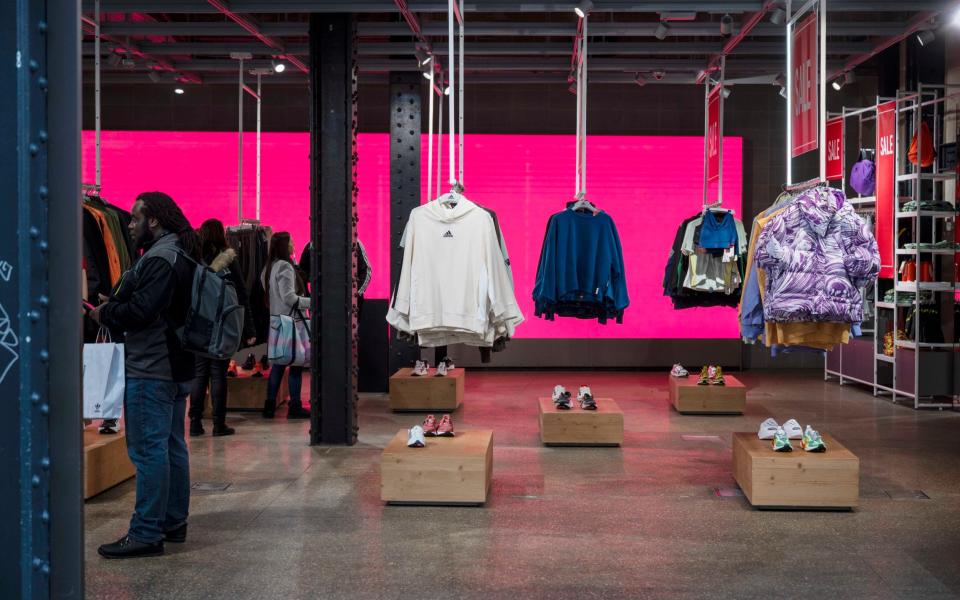‘Retail recession’ warning as sales plummet

High streets are in the grip of a “retail recession”, economists have warned, after shop sales slumped unexpectedly rapidly in September.
Retail sales volumes fell by 0.9pc in the month to September, according to the Office for National Statistics.
The drop was far more than analysts expectations of a 0.2pc drop and more than erasing the 0.4pc increase in August.
Over the three-month period from July to September, sales volumes fell by 0.8pc.
Alex Kerr, assistant economist at Capital Economics, said: “This suggests that after the 18-month-long retail recession came to an end in Q1, the sector may already be back in recession.
“As the drag on activity from higher interest rates intensifies, we still think that real consumer spending will decline by 0.5pc from its peak to its trough over the coming quarters.”
The drop in sales came despite the fact that rail strikes in September boosted fuel sales by 0.8pc month-on-month.
Unseasonably warm weather in September deterred shoppers from buying autumn winter clothes. Non-food store sales slumped by 1.9pc in September, following a rise of 0.3pc in August. Online store sales also fell by 2.2pc.
Temperatures in September were the joint-warmest on record for the month since the Met Office’s records began in 1884.
Cost of living pressures are also continuing to hit sales. Household goods sales slumped by 2.3pc month-on-month as customers bought fewer items of furniture because of high prices and economic uncertainty.
Total retail sales were 17.1pc higher than pre-Covid levels in value terms, but the volume of purchases was 2.5pc lower.
The outlook for retailers is getting worse. GfK’s consumer sentiment index plunged from -21 to -30 in October, its lowest level since July. Excluding the pandemic, this was the largest monthly fall since December 1994.
GfK’s major purchase index plummeted 14 percentage points to -34, signalling that consumers are likely to cut back on spending in the run up to Christmas.
The market researcher warned the conflict between Israel and Palestine added further pressure to worries about a slowing jobs market and surging mortgage rates and rents.
Joe Staton, GfK’s client strategy director, said: “The fierce headwinds of meeting the accelerating costs of heating our homes, filling our petrol tanks, coping with surging mortgage and rental rates, a slowing jobs market and now the uncertainties posed by conflict in the Middle East, are all contributing to this growing unease.”
Mr Kerr said: “We suspect the lagged effect of the Bank of England’s interest rate hikes may be weighing more heavily on sentiment. This doesn’t bode well for retail sales in the run up to Christmas.”
The pound initially dropped 0.2pc against the dollar on the weaker than expected sales data before recovering some ground.
